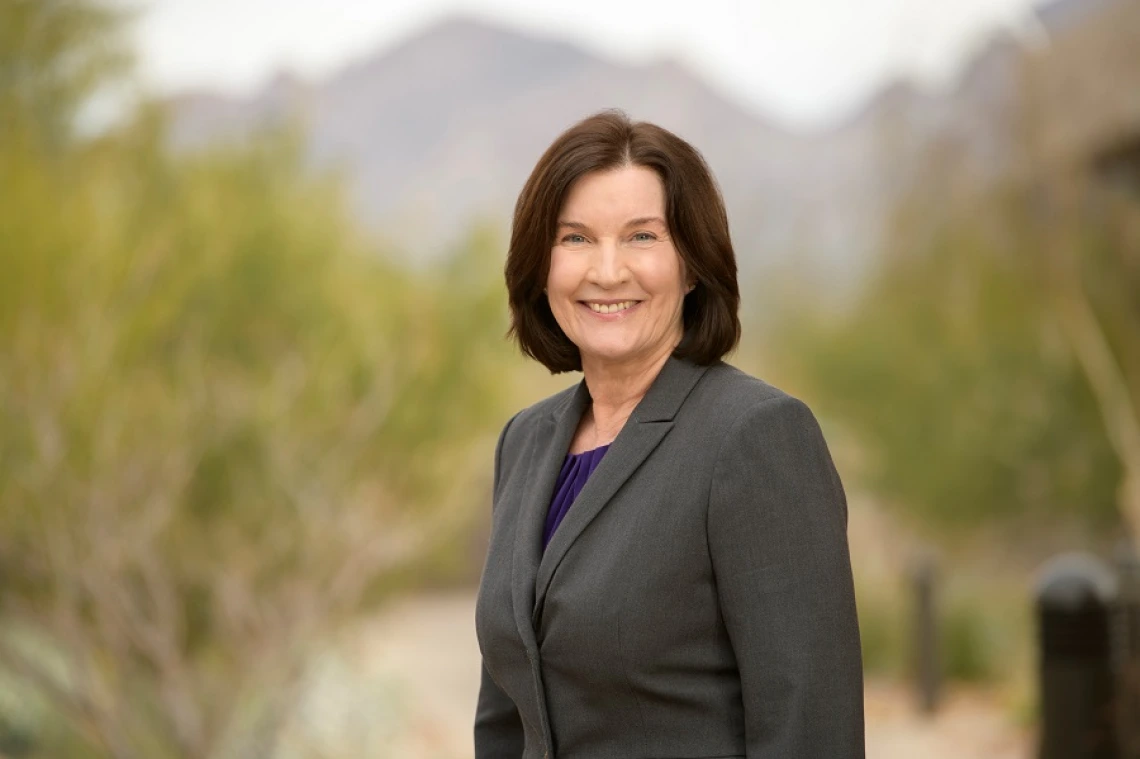College of Nursing takes the helm in postdoctoral cancer prevention training program

Terry A. Badger, PhD, RN, PMHCNS-BC, FAAN
The College of Nursing and the U of A Cancer Center are announcing a change in leadership for the T32 Cancer Prevention and Control Training Program Addressing Health Disparities. Although this training program has existed for many years, this is the first time the College of Nursing has taken the lead. Terry Badger, PhD, RN, PMHCNS-BC, FAAN, who holds the Eleanor Bauwens Endowed Chair and is the interim Associate Dean for Research, possesses the mentoring skills and leadership experience necessary to ensure the program’s success. Badger shares leadership responsibilities for this initiative with Robin Harris, PhD, MPH, professor emeritus, and Gloria Coronado, PhD, professor of the Mel & Enid Zuckerman College of Public Health.
This exceptional team of seasoned cancer prevention scientists is nationally recognized for their expertise in career mentoring, including support for dozens of underrepresented trainees. The training program demonstrates the university’s commitment to cultivating a diverse workforce of scientists focused on cancer prevention research, equipping them with the skills and education necessary to compete for independent research careers and thereby enhance the diversity of the biomedical research workforce. The grant is backed by a $363,543 Non-Competing Continuation Award from the National Institutes of Health’s (NIH) National Cancer Institute (NCI).
The program has three main objectives. First, it aims to recruit exceptional and diverse applicants dedicated to cancer prevention and control research careers, highlighting reducing health disparities. Second, it involves fellows in a thorough training program facilitating their transition to independent scientists. Third, it conducts ongoing evaluations to ensure high-quality outcomes and continuous improvement.
Through the continuation award and in partnership with Dr. Jacob Schwartz, PhD, associate director of Cancer Research Training and Education Coordination, the program will support up to five postdoctoral fellows each year for the next four years, broadening its reach and impact. Specifically, the program aims to advance the careers of independent CPC scientists by providing a structured curriculum centered on cancer prevention, control, and health disparities sciences. Participants benefit from mentorship by experienced faculty, tailored career development plans, and opportunities for guided research. The program emphasizes the importance of submitting peer-reviewed publications, presenting at scientific conferences, and preparing research proposals. Consequently, trainees emerge as independent researchers ready to tackle the systemic factors contributing to cancer health disparities.
The U of A Cancer Center has a 23-year history of training exceptional cancer prevention scientists, making it an ideal setting for the program. Arizona’s diverse population, which includes significant numbers of Hispanic and American Indian residents, as well as rural and border communities grappling with persistent poverty, offers fellows a unique opportunity to conduct meaningful research that addresses the needs of underserved populations. This program aligns with the university’s strategic plan and seeks to foster innovation in cancer research tailored to these communities. The program’s renewal offers a remarkable opportunity to prepare a diverse group of scholars for impactful cancer prevention and control careers, advancing health equity for communities that most need it.
“Dr. Badger has established a reputation as a highly respected educator, mentor, and scientist, dedicated to her career in promoting health equity and improving the lives of cancer patients. She is widely recognized for her leadership and groundbreaking research, funded by the NCI and the American Cancer Society, said Brian Ahn, PhD, dean of the College of Nursing. Badger is committed to mentoring the next generation of healthcare leaders. She is a Fellow of the American Academy of Nursing, the American Psychosocial Oncology Society, the National Academies of Practice, and the International Nurse Researcher Hall of Fame.
The renewal of the T32 program highlights the NIH’s confidence in the U of A Cancer Center’s outstanding ability to cultivate diverse scientists ready to lead efforts in reducing cancer health disparities. By emphasizing innovation, mentorship, and interdisciplinary collaboration, the program builds on its legacy of excellence and addresses the urgent health inequalities affecting underserved communities in Arizona and beyond. This initiative exemplifies the university’s dedication to promoting health equity and preparing the next generation of researchers to significantly impact cancer prevention and control.

